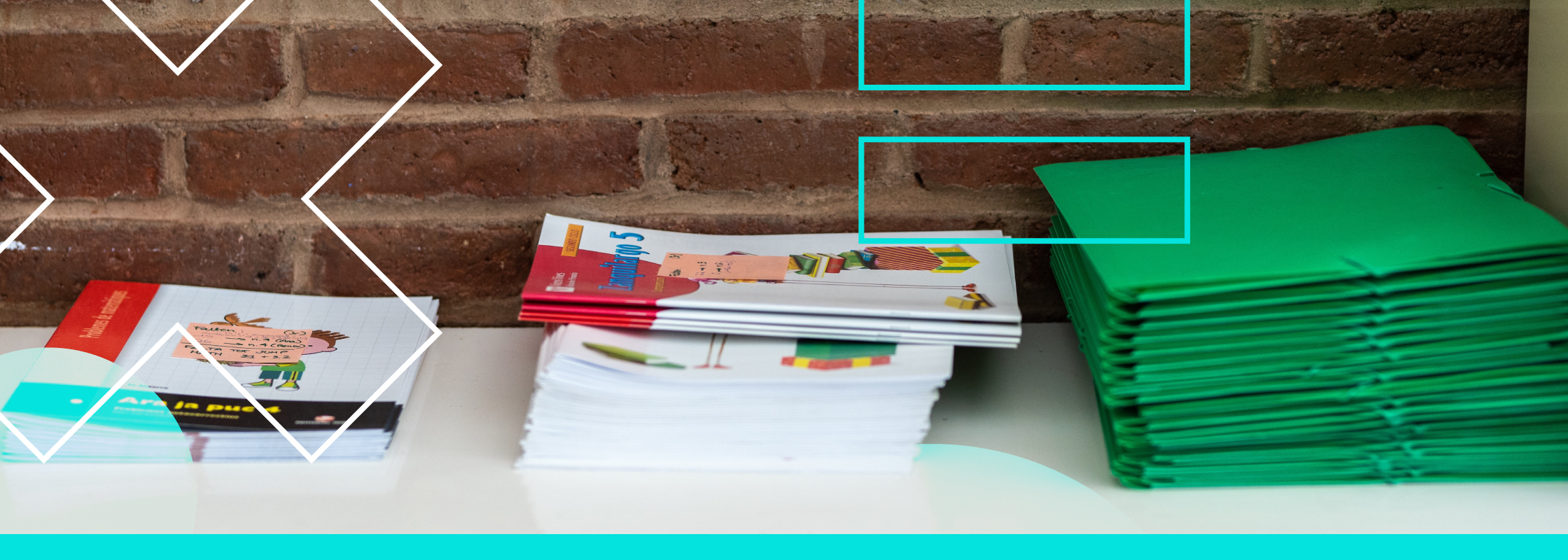4 keys for connecting research and education policy and driving the improvement of education
30/08/2021

Research has shown for a long time that repeating a year is a measure that does not provide benefits (if anything, it is detrimental) for the educational progression or behaviours of repeating students, while also being an extremely expensive measure. Year repetition nonetheless continues as a practice in our education system.
Research also indicates that 0-3 education favours opportunities for children from families with fewer financial resources. We also know that the return from this investment in economic and social terms is far higher than its cost. However, until now there has been no determined policy for universal access to education at this stage.
Related: Join the manifesto Let’s commit to research to improve Catalonia’s education
Abolishing year repetition and making high-quality 0-3 education universal should increase the educational opportunities of all students and enhance the equity and efficiency of the system. So, why is there no real push for these policies?
The lack of interest in research conclusions has resulted in lost opportunities to improve the system and rising inequality.
This is a symptom of the modest role played by scientific evidence in decision-making surrounding educational policies in Catalonia. This lack of interest in research conclusions has resulted in lost opportunities to improve the system and rising inequality: it affects to a larger extent children and young people who already have fewer opportunities from the outset.
It is irrefutable that governing involves managing complexity – in a context of limited resources – and bringing different values and preferences into play. However, it is also evident that research has a lot to offer in terms of the approach to social and educational problems: it allows better policies to be made (more effective, efficient and equitable, as we saw in the previous examples) and it contributes to rationality in public discussion and broader transparency. Accordingly, a responsible education policy must start and progress from a foundation of in-depth knowledge.
Related: Evidence that drives opportunities. Let’s lay the foundations of educational recovery!
However, constructive dialogue between science and policy does not happen by chance. From the outset, committed researchers and policy makers who are willing to listen to them are needed, but there are nonetheless still hurdles to overcome.
The experience of governments that have sought to commit to evidence-informed policies shows that the will of researchers and public managers alone is not enough. To ensure that the foundations of educational policies are laid in a manner that is sustainable, transparent and sustained over time, governments worldwide are launching instruments focussed on 4 main objectives:
1. Encouraging useful educational research to respond to a country’s educational challenges
In certain countries, such as the Netherlands or Belgium, funding lines are offered expressly for research that addresses specific challenges, or research institutions are directly set up, focussing on the production of knowledge to respond to issues that are political priorities.
Major commitments have also been made, such as in Estonia, to provide integrated, high-quality administrative databases on key aspects of education (outcomes in skills tests, educational pathways of students, absenteeism and drop-out, access to particular grants or programmes, etc.) and to make them accessible to analysts and researchers.
2. Ensuring that the knowledge generated is transferred and brought to the attention of the key stakeholders in the education system
In order to take advantage of the knowledge generated, this knowledge needs to reach the key players. Frontline professionals, teachers and other educators, as well as those in charge of planning and organising the different services and programmes that make up the education system must be able to become acquainted with this knowledge and adopt it.
There are many reasons why this is not always easy. One such reason is that the findings of research tend to be disseminated in publications solely intended for researchers – tending not to be very useful or relevant for professionals – and indeed the professionals are often not even able to access the publications. How can this challenge be responded to? One example is as follows: in 2013, the Norwegian Ministry of Education and Research set up a specific body with the task of identifying, summarizing and communicating the most relevant evidence for decision-making to professionals and those responsible for the education sector, in a format and language adapted to their needs.
Related: Read the publication Evidence that drives opportunities. Let’s lay the foundations of educational recovery!
3. Systematically and rigorously assessing education policies
In the United Kingdom, the goal was established to respond to the education crisis generated by school closures due to Covid-19 with the National Tutoring Programme, a major strategy to provide individualised support to students. And, at the same time as the implementation of this programme, a series of studies were launched to assess it with the aim of obtaining robust information that would help to solve what was not working properly, to clarify with certainty whether or not the programme fulfilled its purpose, and to gather together lessons in order to design similar interventions in the future.
It is an example of the effort dedicated in certain settings to securing information about the implementation, effectiveness and efficiency of the education programmes and policies they set up. The knowledge that can be generated as a result of the operation of public policies is one of the best sources of learning for any system, from a standpoint of continuous improvement. This is, of course, in addition to being a tool for accountability and transparency towards the public.
4. Guaranteeing that evidence is considered in a systematic manner in decision-making regarding education policies
The key moment in the entirety of this process is the decision-making. It is not sufficient to generate evidence and disseminate it: it must be taken into consideration. To ensure this, some countries have opted to train public managers in competencies linked to science and the use of evidence for public policies.
It is not sufficient to generate evidence and disseminate it: it must be taken into consideration.
A complementary strategy is to establish units and procedures that compel, incentivise and enable the incorporation of evidence: from internal units within public authorities which assess the design of programmes, such as in the Philippines, to external bodies that review the suitability of these proposals, taking into consideration available scientific knowledge.
And what about Catalonia?
Catalonia has many makings of what could be an education system that is more informed by research: a long tradition of cooperation between teachers and researchers in the field of institutes of education sciences, more than eighty acknowledged research groups working in the field of education, a number of knowledge units that are already in operation at the heart of education authorities, and so on. But there is a long way to go in Catalonia in terms of connecting research and public policy, a connection that should enable informed decision-making to take a leap forward in the quality and equity of education.
For this reason, Fundació Bofill – together with more than 700 teachers, researchers, schools, research groups and institutions – is highlighting the need to make an institutional commitment to connecting education policy with research. During this very term of office, the foundations must be laid for sound education policies: we know why it is necessary and what tools are required to do it.
If you would like to find out more, go to recercaperleducacio.cat, join the proposal and share it!
Retrieve the presentation video for the initiative + Research x Better Education
